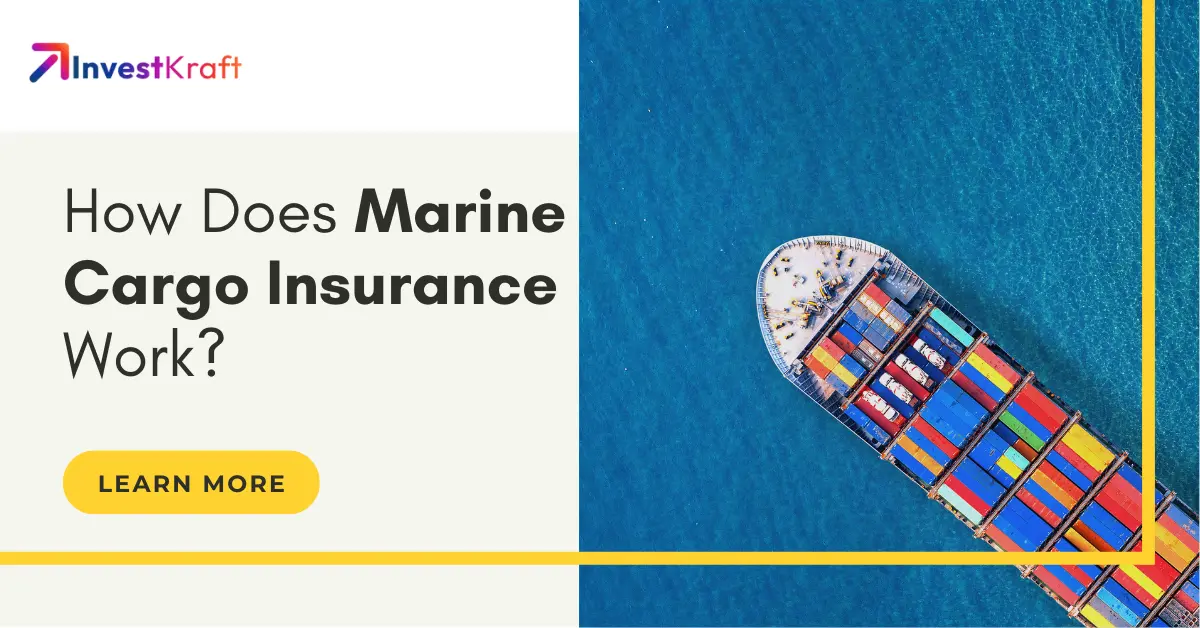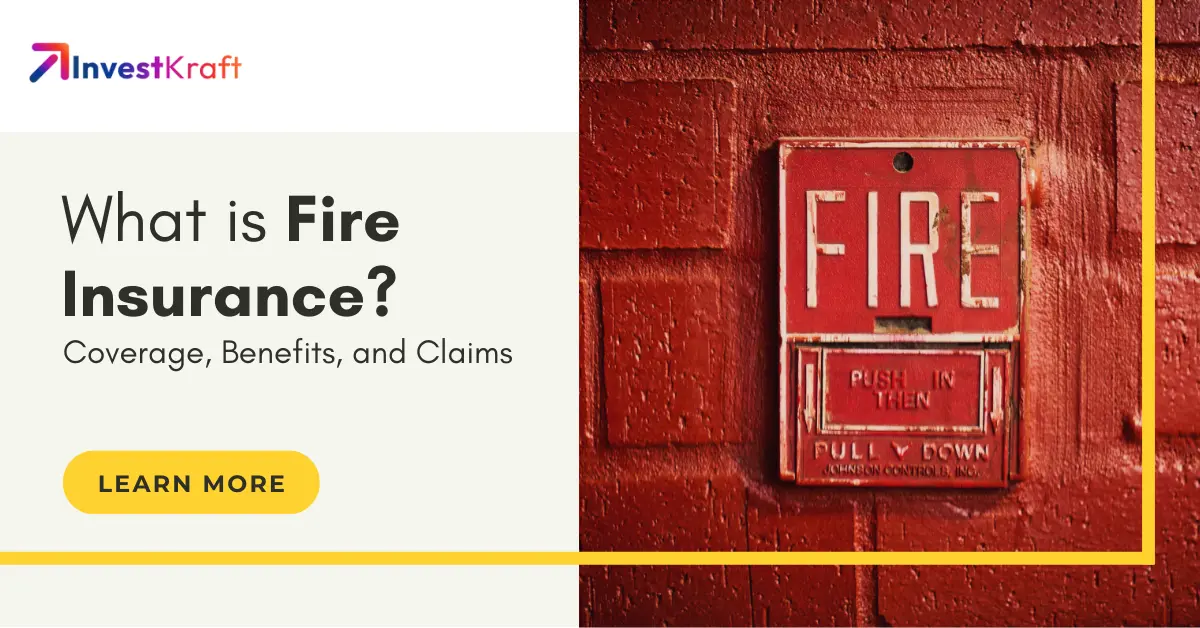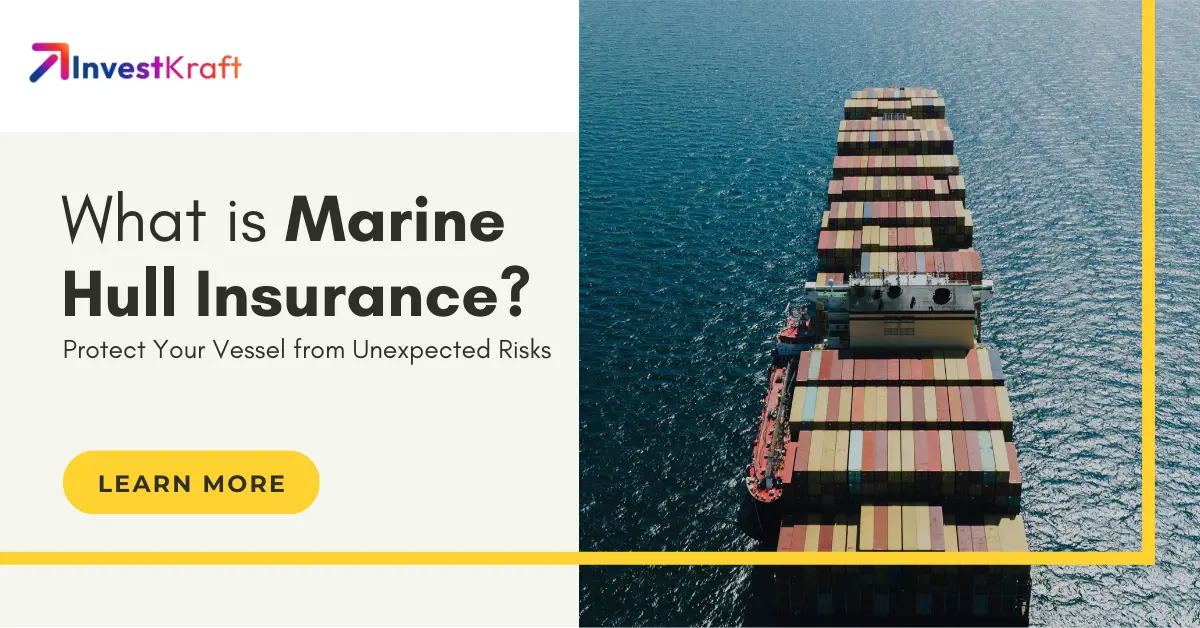Everything You Need to Know About Marine Cargo Insurance in 2025

Imagine a ship laden with treasures – delicate electronics, life-saving medicines, or perhaps your company's latest innovation. Now imagine the perils of the high seas: raging storms, treacherous reefs, and the ever-present threat of piracy. This is where Marine Cargo Insurance steps in, a crucial shield against the unpredictable nature of ocean transport.
This Marine Cargo Insurance policy acts as a safety net for businesses and individuals, offering financial protection against potential losses that may occur while transporting goods by sea. From the moment your cargo leaves the warehouse to its final destination, Marine Cargo Insurance provides peace of mind, ensuring that your valuable assets are safeguarded against unforeseen events.
What is Marine Cargo Insurance?
Marine Cargo Insurance is a specialized type of insurance that protects goods against the risks of physical loss or damage to cargo, shipments, and vessels while they are being transported by sea.
It covers a wide range of potential losses, including:
- Physical Loss or Damage: This covers damage or destruction of goods due to perils like storms, fire, collisions, and groundings.
- Loss or Damage from External Causes: This includes losses caused by fire, explosion, and other external factors.
- Total Loss: If the goods are completely destroyed or lost at sea.
- Partial Loss: If the goods are partially damaged or lost.
- General Average: This covers losses incurred to save the ship and remaining cargo from a common peril.
Popular Types of Marine Insurance Coverage
- Marine Cargo Insurance: Protects the value of the cargo during transportation against loss or damage from perils like a shipwreck, collision, theft, pilferage, fire, and natural disasters.
- Marine Hull Insurance: Covers the ship itself, its machinery, and equipment against physical damage from perils encountered at sea.
- Loss of Hire Insurance: Provides compensation for lost income if a vessel is damaged and unable to operate while undergoing repairs.
- Freight Forwarders Liability Insurance: Protects freight forwarders from legal liability for loss or damage to cargo while under their care, custody, and control.
Further reading about “Marine Hull Insurance”
Benefits of Marine Insurance
- Financial Security & Peace of Mind: Without marine insurance, your business could face a devastating financial blow in case goods are lost at sea due to a storm. Marine insurance acts as a safety net, covering the costs of lost goods. This financial protection reduces stress and allows businesses to focus on their core operations.
- Protection from Significant Financial Losses: Unexpected events like shipwrecks, fires, or cargo theft can cause massive financial losses for businesses. Marine insurance helps mitigate these risks by compensating for the value of damaged or lost goods. This prevents businesses from experiencing crippling financial setbacks.
- Secure Financing and Credit: Banks and lenders often require proof of marine insurance coverage before granting loans or credit for international trade. This is because marine insurance demonstrates that the business has taken steps to minimize risks associated with the shipment. By having marine insurance, businesses can easily secure the necessary financing for their international trade ventures.
- Minimizes Business Disruptions: When a shipment is lost or damaged, it can disrupt the entire supply chain. This can lead to delays in production, missed deadlines, and dissatisfied customers. Marine insurance allows businesses to quickly recover from losses and resume operations smoothly. This minimizes disruptions and helps maintain a positive reputation with customers.
Example To Understand Marine Cargo Insurance Better
Here is a fictional incident in a Mumbai-based company involving Marine Cargo Insurance:
Scenario:
"SeaWorthy Exports," a Mumbai-based company specializing in exporting handcrafted Indian textiles to Europe.
A devastating fire breaks out in the company's warehouse in suburban Mumbai. The fire, originating from faulty electrical wiring, quickly engulfs the entire facility. A significant portion of the inventory, including hand-woven silk sarees, embroidered cotton kurtas, and intricately designed pashminas, is destroyed. The fire also damages essential machinery used for dyeing, printing, and packaging textiles. The fire forces SeaWorthy Exports to halt operations temporarily, disrupting ongoing orders and causing significant financial strain.
How is Marine Cargo Insurance Helped?
SeaWorthy Exports had comprehensive Marine Cargo Insurance in place, which included coverage for: fire and allied perils, stock loss, business interruption, contingent business interruption, and more.
SeaWorthy Exports promptly filed a claim with their insurance provider. They provided detailed documentation, including photographs of the damage, inventory records, and financial statements. The insurance company conducted a thorough investigation to assess the extent of the loss.
Compensation & Outcome
The insurance company approved the claim and provided compensation to SeaWorthy Exports for - the value of the destroyed inventory; the cost of repairing or replacing the damaged machinery; the lost profits during the business interruption period and increased expenses incurred to maintain operations during the disruption.
While the fire caused significant disruption, the Marine Cargo Insurance coverage helped SeaWorthy Exports recover from the incident. The compensation received enabled the company to rebuild its inventory, repair the damaged machinery, and resume operations. This allowed them to fulfil existing orders and maintain their position in the competitive global market.
What are the key Inclusions?
- Physical Loss or Damage: Covers damage or destruction of goods due to perils like storms, fire, collisions, and groundings.
- Loss or Damage from External Causes: Includes losses caused by fire, explosion, and other external factors.
- Total Loss: If the goods are destroyed or lost at sea.
- Partial Loss: If the goods are partially damaged or lost.
- General Average: Covers losses incurred to save the ship and remaining cargo from a common peril.
What are the Exclusions?
- Loss or damage due to inherent vice refers to the natural deterioration or decay of goods, such as the spoilage of perishable items.
- Loss or damage due to willful misconduct or negligence of the insured.
- Loss or damage due to war or acts of war.
- Loss or damage due to delays in transit.
- Loss or damage due to inadequate packaging or labelling.
How to Choose the Right Marine Insurance Policy?
Factors to consider when choosing a marine insurance policy:
- The type and value of goods being shipped
- The voyage route and potential risks involved
- The desired level of coverage
- The reputation and financial strength of the insurance company
- The cost of the premium
About the Challenges Faced by Marine Cargo Insurance
- Complexity of Claims: Marine cargo claims can be complex and time-consuming to settle, often involving investigations and multiple parties.
- Valuation of Goods: Determining the accurate value of damaged or lost goods can be challenging, especially for unique or specialized items.
- Fraud and Misrepresentation: The risk of fraudulent claims or misrepresentation of facts can significantly impact the insurance industry.
- Emerging Risks: The evolving nature of maritime trade, including new technologies and trade routes, presents new and emerging risks that insurers must continually assess and address.
Tips from the Experts for You
- Do not make haste while buying marine cargo insurance
- Compare quotes, coverage, and other terms
- Buy marine cargo insurance from a renowned insurer
- Check the claim ratio and benefits before concluding a sale
Concluding Thought
In the ever-changing landscape of global trade, Marine Cargo Insurance remains a vital tool for businesses and individuals alike. By understanding the intricacies of this insurance policy, businesses can effectively mitigate risks, protect their valuable assets, and navigate the complexities of international shipping with confidence.
While challenges exist, the benefits of Marine Cargo Insurance are undeniable, providing a crucial safety net in the face of unforeseen events and ensuring the smooth and secure transportation of goods across the world's oceans.
FAQs on Marine Cargo Insurance
Q1. What is Marine Cargo Insurance and why is it important?
Marine Cargo Insurance is a type of insurance that covers goods while they are being transported by sea, air, or land. It protects against losses or damages that may occur during transit, such as fire, theft, accidents, and natural disasters. It's crucial for businesses that import or export goods, as it safeguards their investments and minimizes financial risks.
Q2. What types of losses are covered under Marine Cargo Insurance?
Coverage can vary depending on the policy, but common losses include: the physical damage to goods (fire, water damage, collision), the total loss of goods (sinking, aircraft crash), theft or pilferage, damage due to natural disasters (earthquakes, hurricanes), and the delay in transit resulting in financial losses.
Q3. What are the different types of Marine Cargo Insurance policies?
- Specific Policy: Covers a single shipment of goods.
- Open Policy: Provides ongoing coverage for multiple shipments over a specific period.
- Voyage Policy: Covers goods during a specific journey.
- Annual Policy: Provides coverage for all shipments made within a year.
Q4. How is the premium for Marine Cargo Insurance calculated?
Premiums are typically calculated based on several factors, including:
- Value of the goods being transported; Mode of transport (sea, air, land);
- Route of transportation;
- Nature of the goods (perishables, electronics, etc.)
- and Coverage limits and deductibles are chosen.
Q5: What are some common exclusions in Marine Cargo Insurance policies?
- Deliberate acts of the insured or their agents
- Wear and tear
- Inherent vice (natural deterioration of goods)
- Losses due to war or political unrest
- Delays caused by factors beyond the control of the carrier
Q6. How do I file a claim under Marine Cargo Insurance?
- Notify the insurance company immediately upon discovering any loss or damage.
- Gather all necessary documentation, such as invoices, bills of lading, and photographs of the damaged goods.
- File a claim form with the insurance company, providing all relevant details.
- Cooperate fully with the insurance company's investigation.
Q7. What are the benefits of having Marine Cargo Insurance?
- Protects your business from financial losses due to damage or loss of goods.
- Provides peace of mind and reduces stress during transportation.
- Improves cash flow by ensuring timely compensation for losses and
- Helps maintain customer relationships by ensuring timely delivery of goods.
Q8. Can I insure high-value items with Marine Cargo Insurance?
Yes, Marine Cargo Insurance can cover high-value items such as jewellery, antiques, and fine art. However, you may need to obtain specialized coverage or declare the high value upfront.
Q9. Is Marine Cargo Insurance Mandatory?
While not always legally mandatory, it's highly recommended for businesses involved in international trade. It provides crucial protection for your valuable assets and minimizes potential financial risks.
Q10. Where can I obtain Marine Cargo Insurance?
You can obtain Marine Cargo Insurance through various channels, including:
- Insurance brokers like InvestKraft
- Insurance agents and
- Direct from insurance companies.

Author: Rajesh Mishra
Rajesh Mishra is a professional and multilingual writer with over 12+ years of versatile experience in content writing.
He has crafted compelling narratives across a diverse array of industries, including BFSI, fintech, IT, pharmaceuticals, e-commerce, education, fashion, and more. He is a commerce graduate from Mumbai University. His strong academic foundation and passion for storytelling enable him to engage audiences and deliver impactful content.
He is adept at transforming complex concepts into clear, relatable language, making his work accessible to both, industry professionals and everyday readers. He thrives in dynamic environments, leveraging his extensive knowledge to create articles, blogs, whitepapers, and marketing materials that resonate with target audiences. Driven by a commitment to excellence and a keen eye for detail, Rajesh Mishra continuously explores emerging trends and technologies, ensuring his content remains relevant and thought-provoking.
















